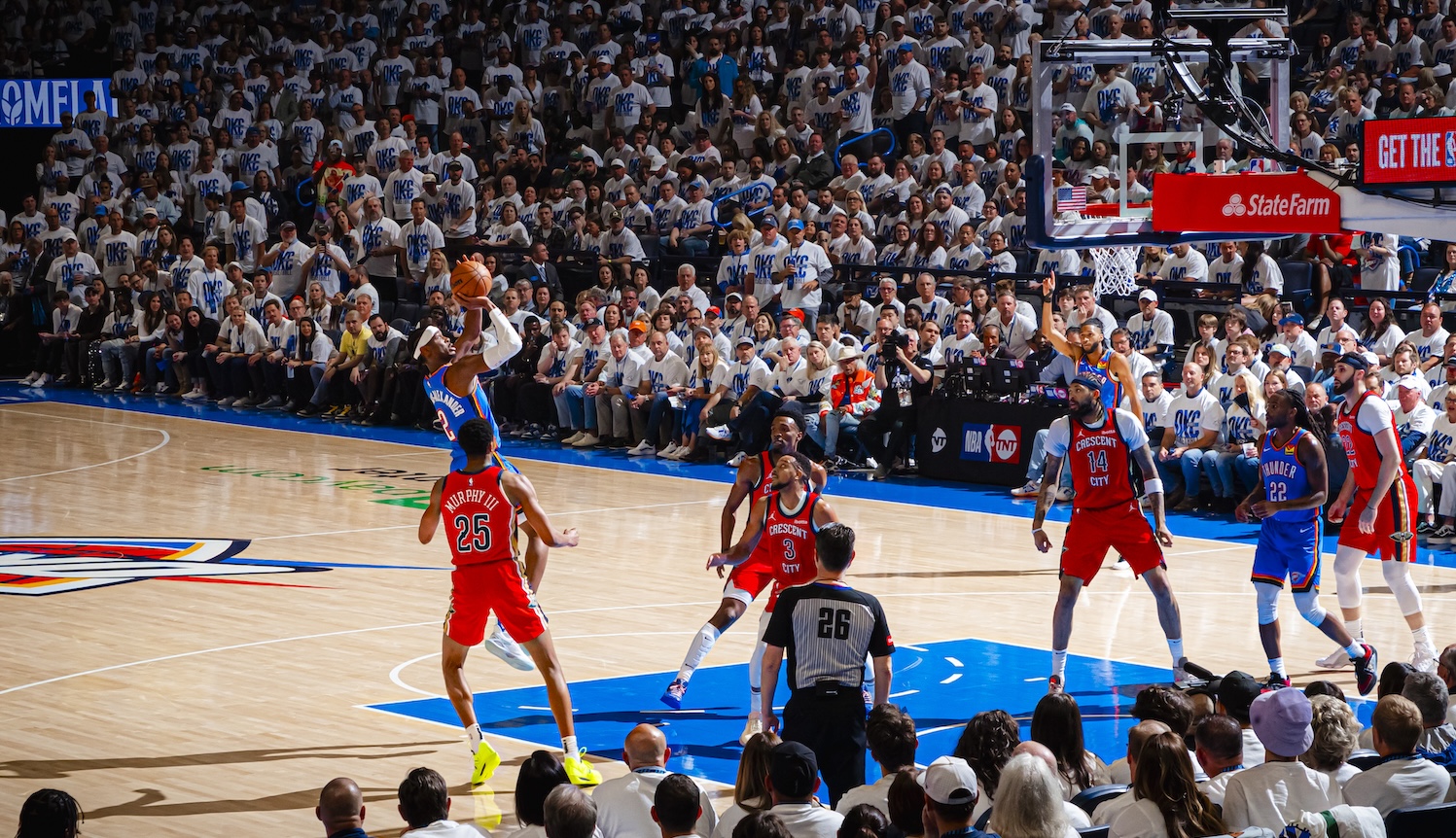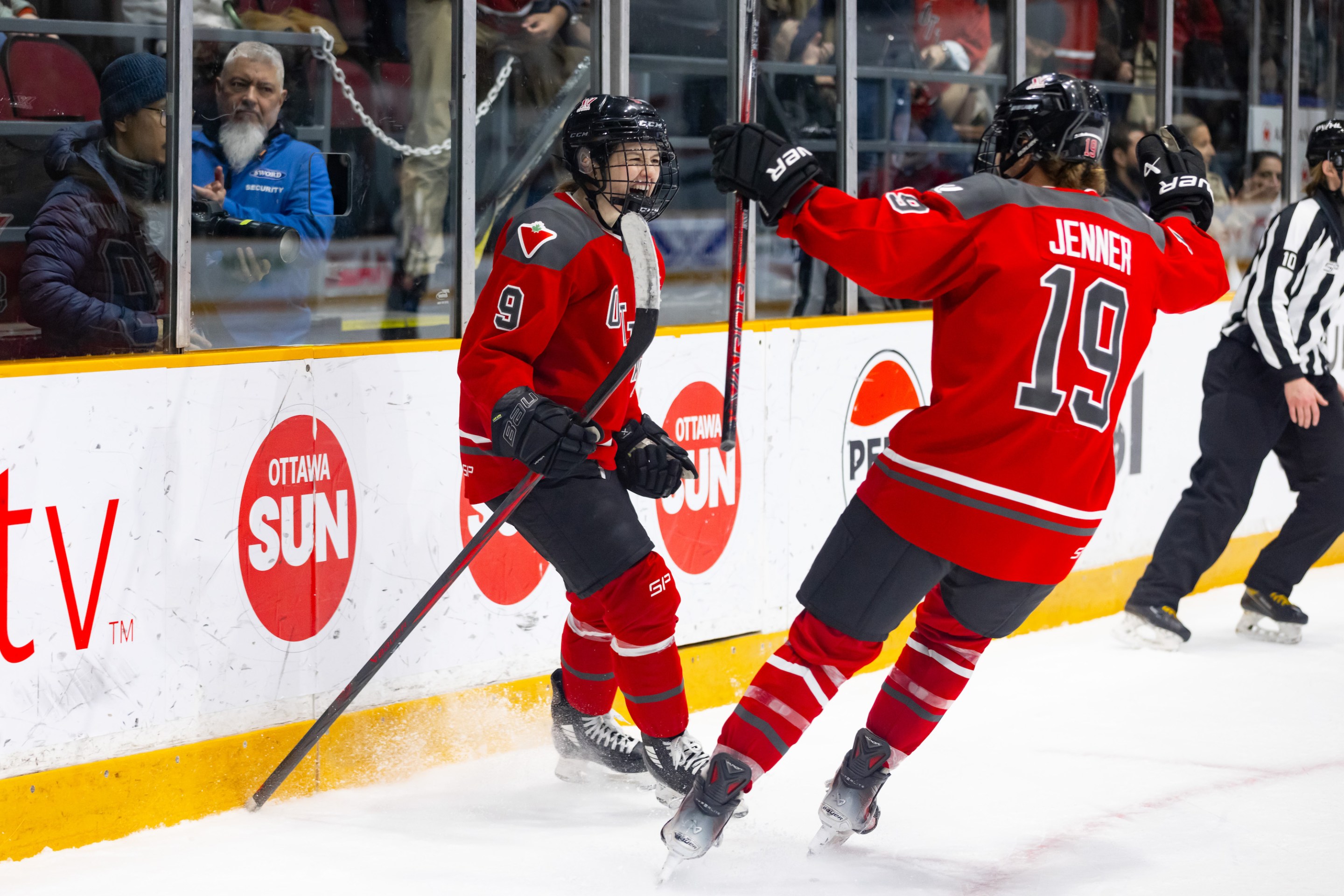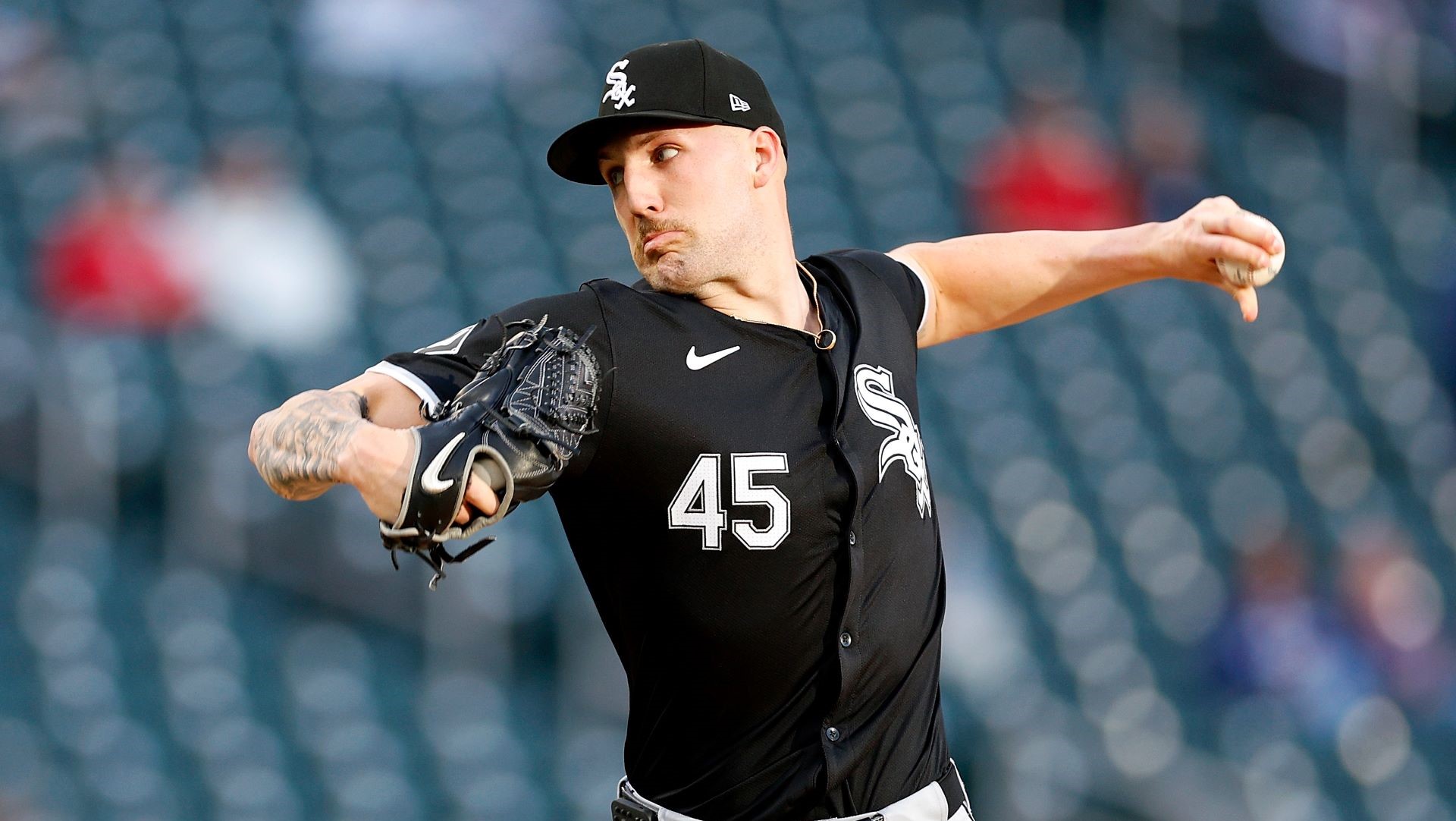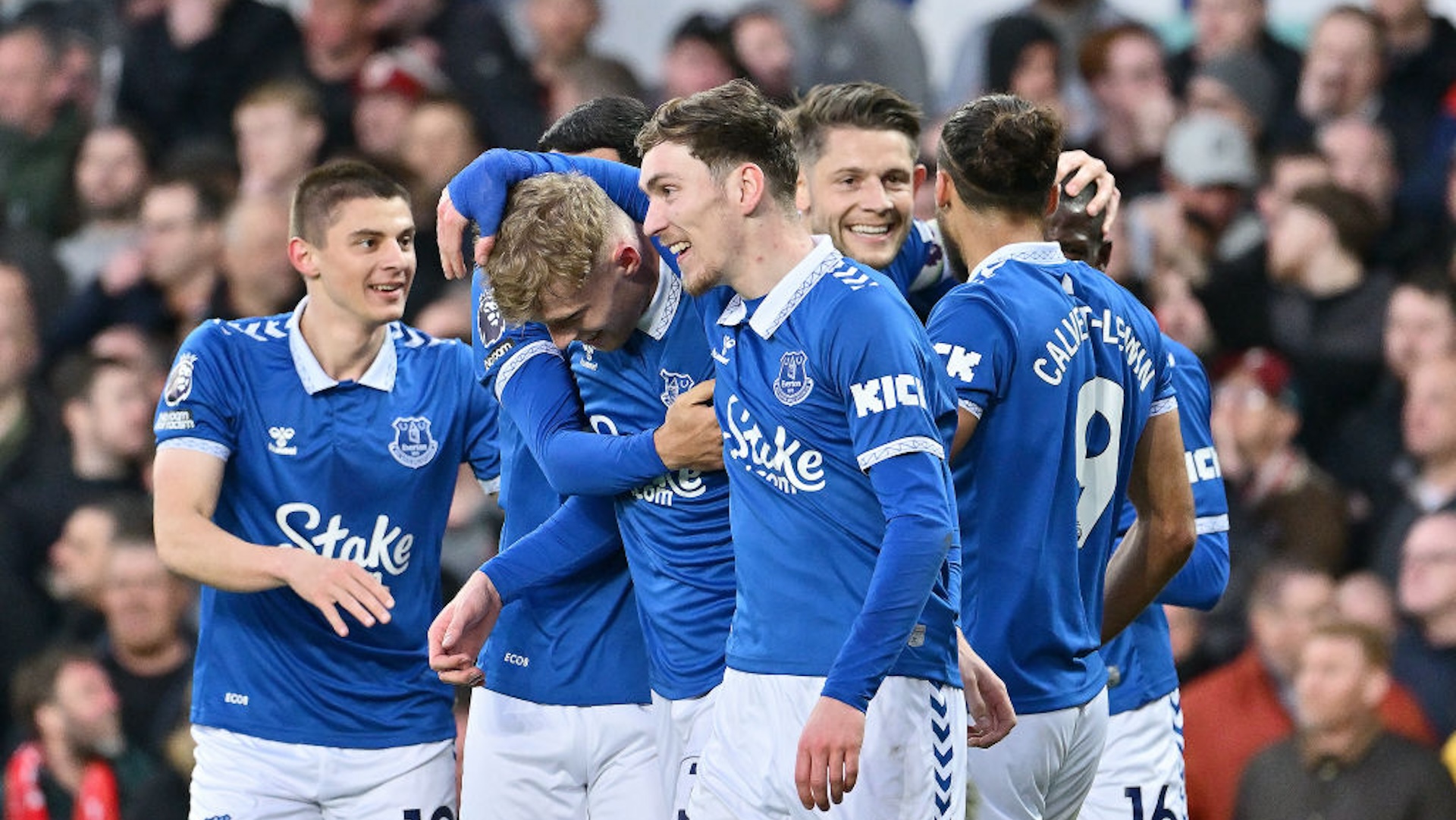There’s A Reason Keepers Don’t Win The Big Hardware
10:23 AM EDT on October 19, 2022
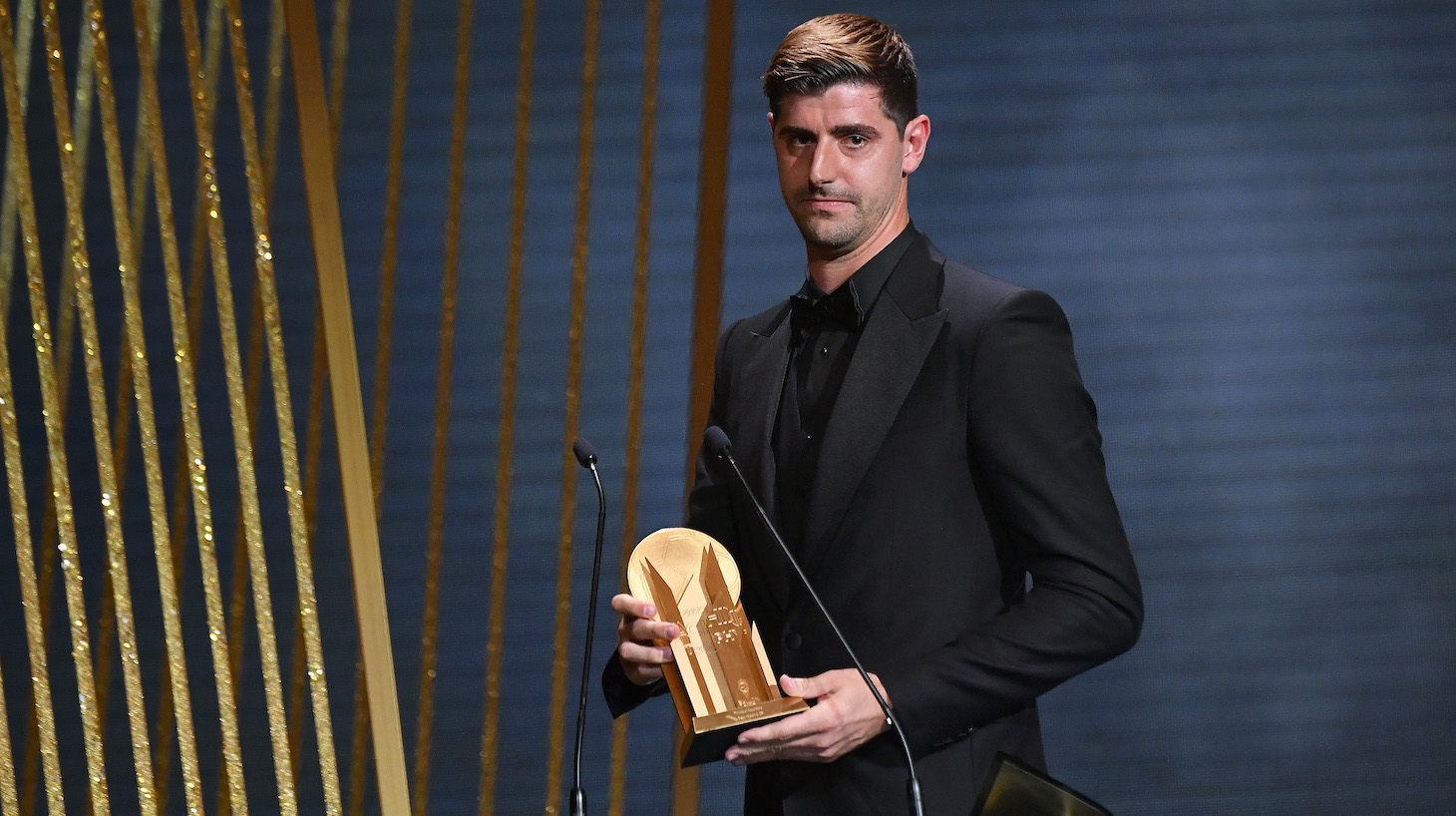
As expected, Karim Benzema was named winner of the Ballon d'Or on Monday. It made for one of the more satisfying bestowals of soccer's top individual prize in recent times. Though obviously deserved, it got a little boring watching Lionel Messi and Cristiano Ronaldo trade the trophy back and forth for about a decade and a half, and Luka Modric's win, the first that broke up the 10-year Messi–Ronaldo Bd'O duopoly, felt a little like a lifetime achievement award in absence of any obvious candidate.
Benzema's title, however, is the real deal. He had the best, flashiest campaign of the season and also of his remarkable and under-appreciated career. For so long more a facilitator than a focal point, beloved by aficionados but often overlooked by casual fans—as Benzema himself once put it, "I play football for people who like football, who go to the stadium to see something different"—Benzema spent last season as the driving force behind a triumphant Real Madrid. He led the team to both of the two biggest titles, did so by repeatedly coming up huge in the biggest moments, and now gets the individual reward and recognition his play has long deserved. And not only is Benzema an appropriate winner and a great player, he's also one of the rare athletes who possess genuine cool. This blog isn't even really about Benzema, but the overwhelming radiance of its aura compels me to include an image here of the Frenchman in the Tupac-inspired suit he wore to Monday's ceremony:
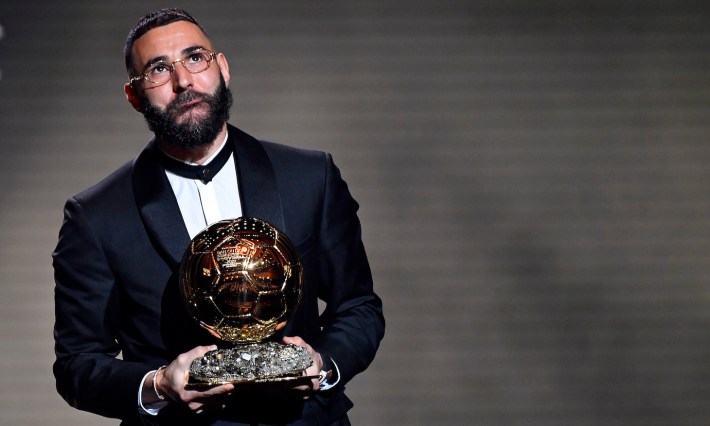
Benzema was a lock to pick up the Ballon d'Or from the moment the whistle brought a close to Real Madrid's 1–0 victory over Liverpool in the Champions League final. No one would quibble with the choice. But if there were a player who had at least a case for being named soccer's outstanding player of last season, it was Benzema's teammate, goalkeeper Thibaut Courtois.
It's hard to imagine a goalkeeper having a bigger impact on his team's success than Courtois did last year. This wasn't one of those overpowered juggernauts Madrid has often employed during its past decade of Champions League dominance. Judging last season's roster on paper, the team looked too old in several key positions, too young and unproven at others, and by no means had the air of a continent-conquering behemoth. Real Madrid wasn't even the favorite to win La Liga at the start of the season, and no one picked the Blancos to win the UCL until the point when it began to feel inevitable. And yet Real's old heads once again refused to go gently into that good night, and a couple of its young prospects really exploded, and the team found itself scrapping and struggling its way past all adversaries foreign and domestic en route to an unexpected La Liga–Champions League double. None of that scrapping and struggling and winning would've been possible without Courtois.
Madrid's Champions League run by itself testifies to Courtois's massive contribution. Benzema might've been Madrid's hero, but Courtois was its savior. Without the Belgian's octopus act, swatting away all number of seemingly unstoppable shots, there's no way Madrid wins the Champions League. Even if you substituted Courtois with an above-average keeper, Madrid probably loses to each one of its knockout-round opponents—listed in order, so that you really get a feel for the gantlet he ran: PSG, Chelsea, Manchester City, and finally Liverpool. In each knockout round, Madrid advanced by just a single goal; in each round, Courtois by himself prevented at least two or three certain goals.
Real Madrid's was the biggest story of the season, and Courtois was one of the two main protagonists in that story's telling. Surely, if ever there were an opportunity for a goalkeeper to be a serious contender for the Ballon d'Or, Courtois's season would've merited it. Yet for all his exploits, Courtois finished seventh in the voting.
At Monday's ceremony, Courtois lamented his relatively lowly ranking. When asked whether he thinks a goalkeeper could ever again win the Ballon d'Or, Courtois responded, "The truth is I think it's impossible." He went on:
"Obviously Karim deserves it, we all agree with that. But after the year I had as a goalkeeper, you win the Champions League, you win the league, you play the Champions League final and your team wins it thanks to your saves, and you only end up seventh […] that says a lot."
"The votes don't go towards goalkeepers," Courtois said. "In the top 10 there weren't any defenders either. It's what happens. It's a bit difficult. But at least they gave me the trophy for best goalkeeper."
The only goalkeeper to ever win the Ballon d'Or was Russia's Lev Yashin, who did so in 1963. Widely acknowledged as the best goalkeeper of all time, Yashin revolutionized the position with his distribution and his willingness to defend off of his line and even outside the penalty box. (Courtois did on Monday win the best goalkeeper of the year award, which is named after Yashin.) Looking solely at outfielders, just three defenders have won the award: Franz Beckenbauer in 1972 and again in 1976, Matthias Sammer in 1996, and Fabio Cannavaro in 2006. Two of those defenders, Beckenbauer and Sammer, were sweepers who were known as much for what they did going forward with the ball as what they did while defending. There are of course amazing, important players in every position in soccer, but there's no denying the distinct pattern: the further you get from the rival's penalty box, the harder it is to win the Ballon d'Or.
Is this fair? I think there are a few things going on. Foremost and obviously, soccer is about goals. From both the entertainment and functional perspectives, scoring goals is the most important part of the game. There is no winning without a goal. In an already intentionally difficult sport, scoring is the hardest thing to do. Creating and converting chances require the rarest, most difficult, most exciting, and most impactful skills the game selects for, and goals change games more than anything else. Attackers command the biggest transfer fees and the largest contracts, and have always been soccer's most celebrated players. For all those reasons, it is good and right that, even in an indivisibly collective sport like soccer, the best attackers are generally considered the game's most valuable players.
But even outside the chalk lines, the attackers enjoy pride of place. Along with being worth more than anything else, goals are the chief attraction of soccer as a spectacle. They are the rare, euphoric exclamation points within a sea of commas and periods. More than any other play, goals give the game its thrill. The narratives that put flesh and blood on the rules' skeleton, which are what make soccer something other than an enjoyable group exercise routine, get their emotional heft from goals. In the story of a game, the ones who create and score are the true protagonists, the ones with the power to bring about change and joy and finality.
By this same logic, the players who obstruct the attackers are necessarily the antagonists. They work to thwart attempts to progress the narrative of the game, and are therefore forces of negation. And no player is more single-mindedly committed to negation than the goalkeeper. Keepers stop, block, and prevent. At best they preserve and prolong the status quo so that their more proactive teammates can go change the game in their favor. Keepers even get to use their hands to make the hardest thing in this already difficult sport even less achievable. Narratively, they have special powers, and they are the villains.
Even when talking about two great players who played essential roles in their team's success, as both Courtois and Benzema are and did, it's not always possible to neatly separate the contributions of the individuals from the whole and adjudge which one was more valuable. Real Madrid couldn't have won what it won last season without Courtois, just like it couldn't have won what it won without Benzema. If ever there was a legitimate debate to be had about which teammate was more important to their team's success, Courtois vs. Benzema would be it.
Nevertheless, you can't call it unfair that Benzema won the Ballon d'Or while Courtois finished seventh. Courtois might've been why Real Madrid didn't lose, but Benzema was why they won. Courtois might've stopped hearts with his saves, but Benzema got them racing with his goals. Courtois might've been the villain who dashed the hopes of a half-dozen would-be protagonists, but Benzema was the hero. The villain can be a crucial part of a story, but the tale still revolves around the hero.
If you liked this blog, please share it! Your referrals help Defector reach new readers, and those new readers always get a few free blogs before encountering our paywall.
Senior Editor
Read More:
Stay in touch
Sign up for our free newsletter
